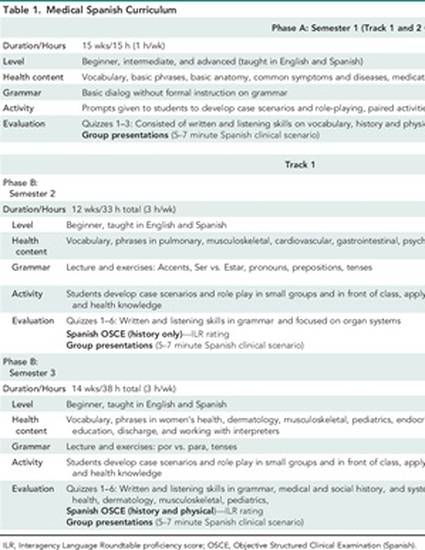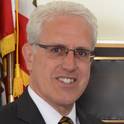
Article
Impact of a Longitudinal Medical Spanish Curriculum on Student Communication Skills
The Journal of Physician Assistant Education
(2020)
Abstract
Purpose
This study describes and examines the short- and longer-term impact of a required longitudinal medical Spanish curriculum on physician assistant student preparedness and ability to communicate with patients in Spanish during clinical rotations.
Methods
Fifty-eight preclinical students participated in an 80-hour curriculum delivered weekly over 3 semesters. Teaching followed a framework of second-language acquisition and included structured grammar and medical vocabulary practice with didactic, interactive, and group assignments. Vocabulary and grammar were assessed with quizzes. Oral proficiency was assessed by faculty with Spanish Objective Structured Clinical Examination (OSCE) stations at midpoint and end using the Interagency Language Roundtable (ILR), a 6-level scale (immediate outcome). Students self-rated proficiency and confidence and evaluated curriculum effectiveness for preparing them to care for Spanish-speaking patients (longer-term outcomes).
Results
All students passed the written and oral quizzes. Faculty-scored ILR verbal proficiency at the OSCEs increased by a mean level of 0.5 over 6 months. Student self-assessed proficiency improved on average by one level from baseline to 24 months later. Students rated highly curriculum effectiveness, preparedness to communicate in Spanish during clinical rotations, ability to judge when an interpreter was needed, and the importance of medical Spanish to future practice.
Conclusions
A required integrated longitudinal medical Spanish curriculum was well received. Physician assistant students demonstrated short-term interval progression in Spanish proficiency, with improvements in both faculty and self-rating scores, and readiness to apply the skill to practice. They valued active learning associated with repeated practice with feedback, role playing, and interval assessments throughout the curriculum.
Keywords
- Spanish,
- curriculum,
- self-assessment,
- language proficiency,
- OSCE
Disciplines
Publication Date
March, 2020
DOI
10.1097/JPA.0000000000000293
Citation Information
Desiree Lie, Sonia Nodal, Margarita de la Torre, Christopher Forest, et al.. "Impact of a Longitudinal Medical Spanish Curriculum on Student Communication Skills" The Journal of Physician Assistant Education Vol. 31 Iss. 1 (2020) p. 23 - 27 Available at: http://works.bepress.com/christopher-forest/35/
